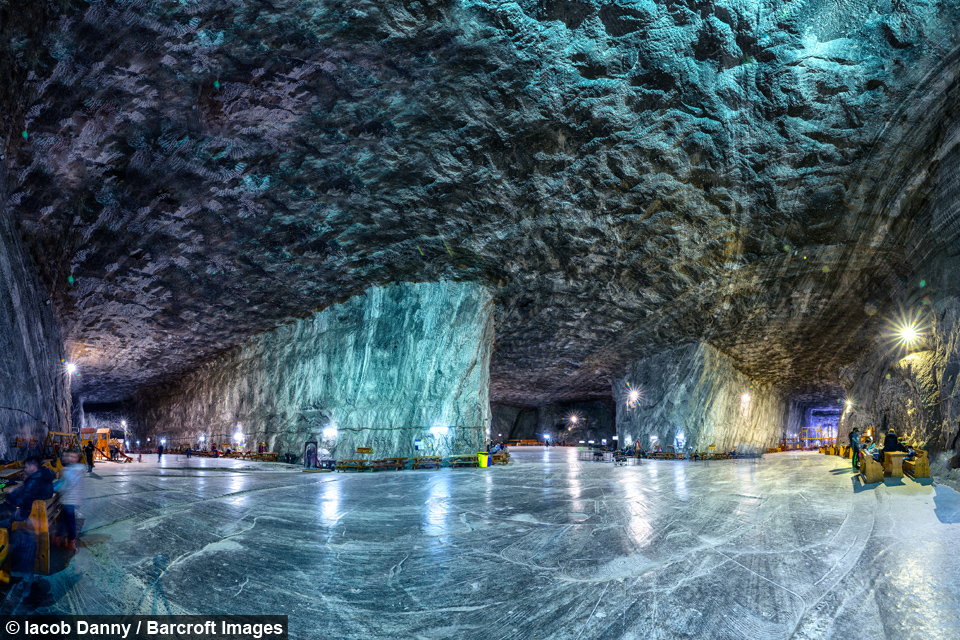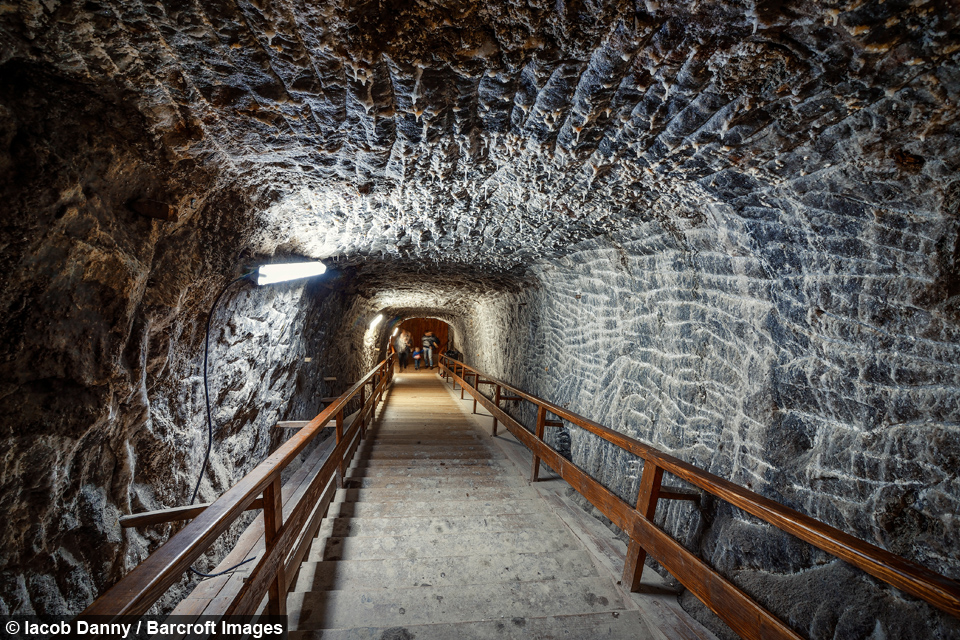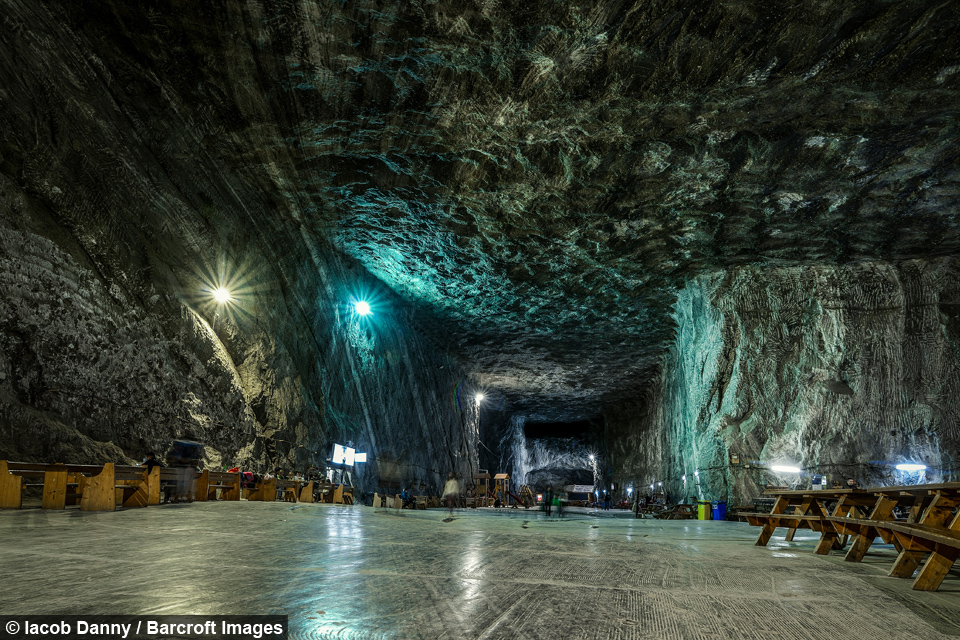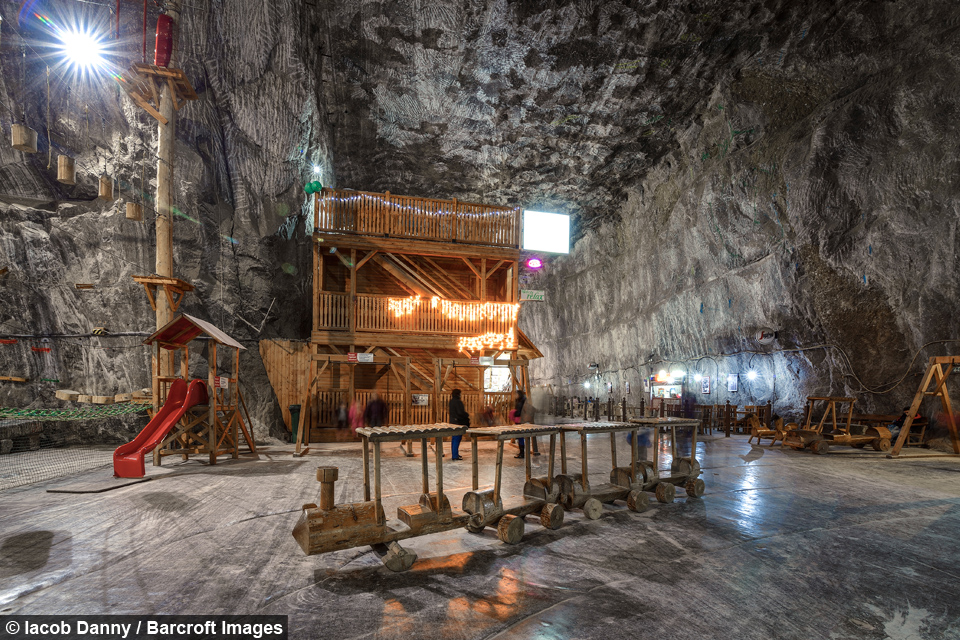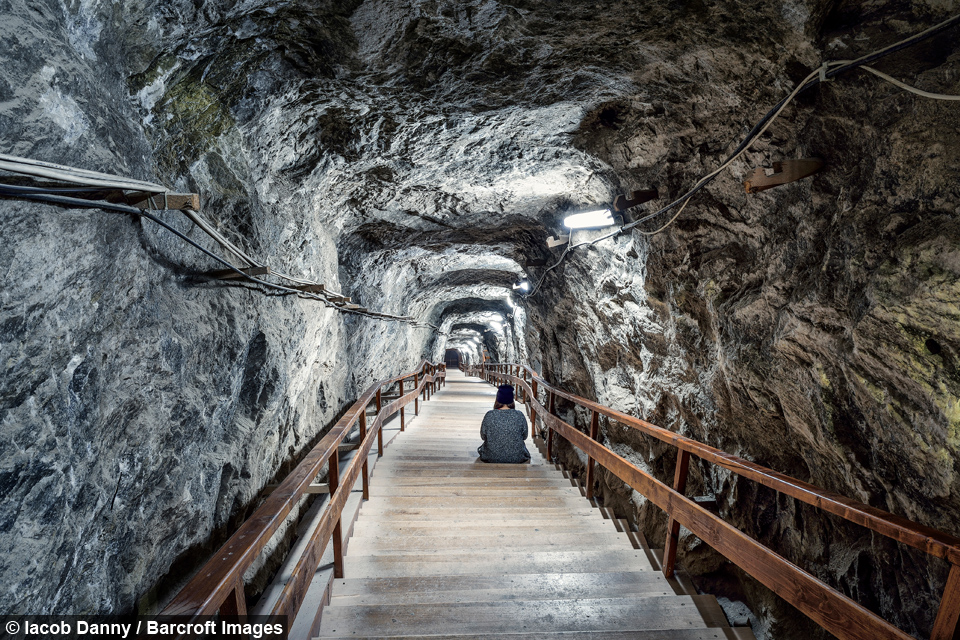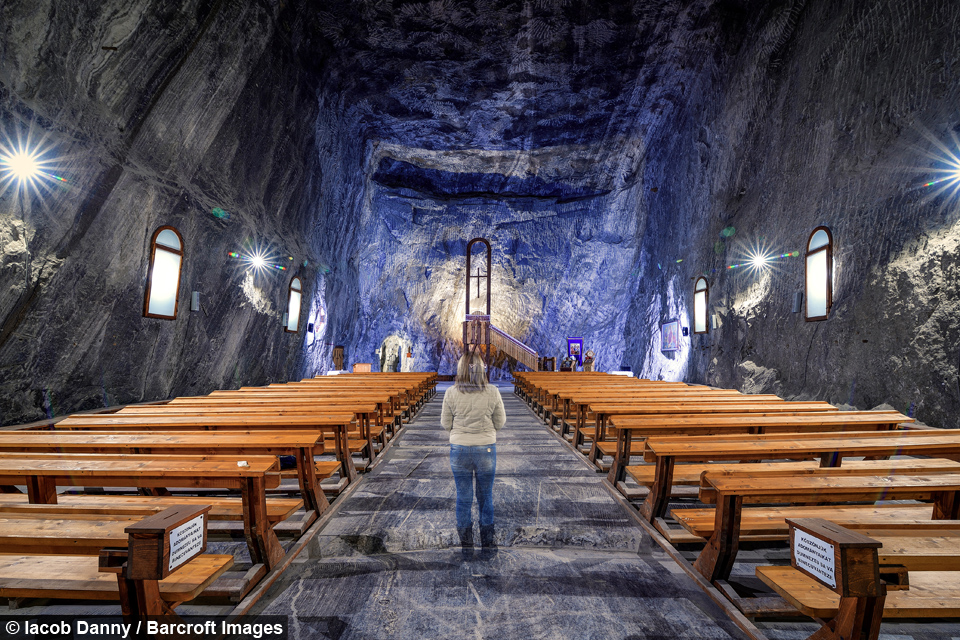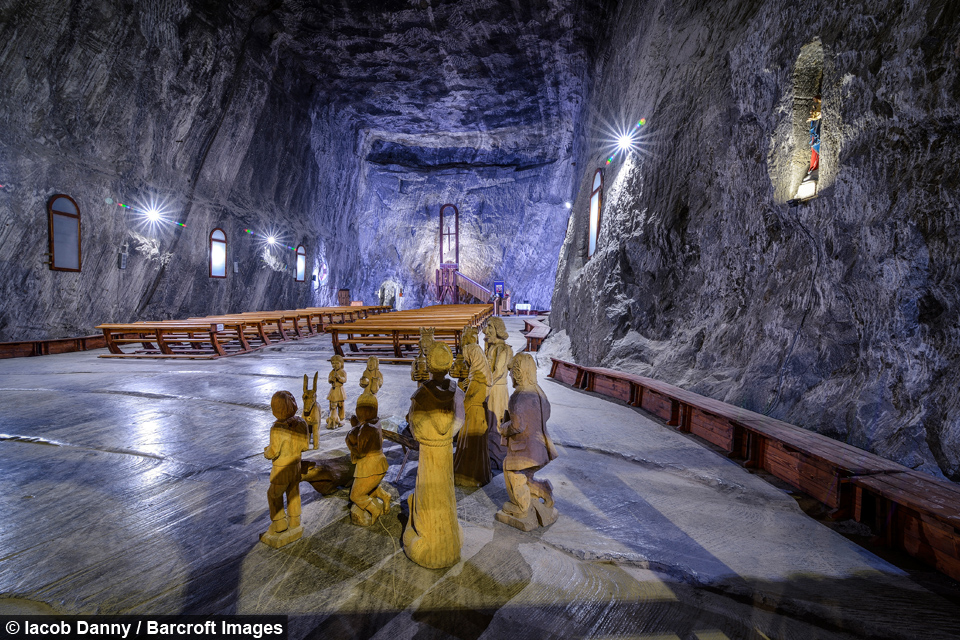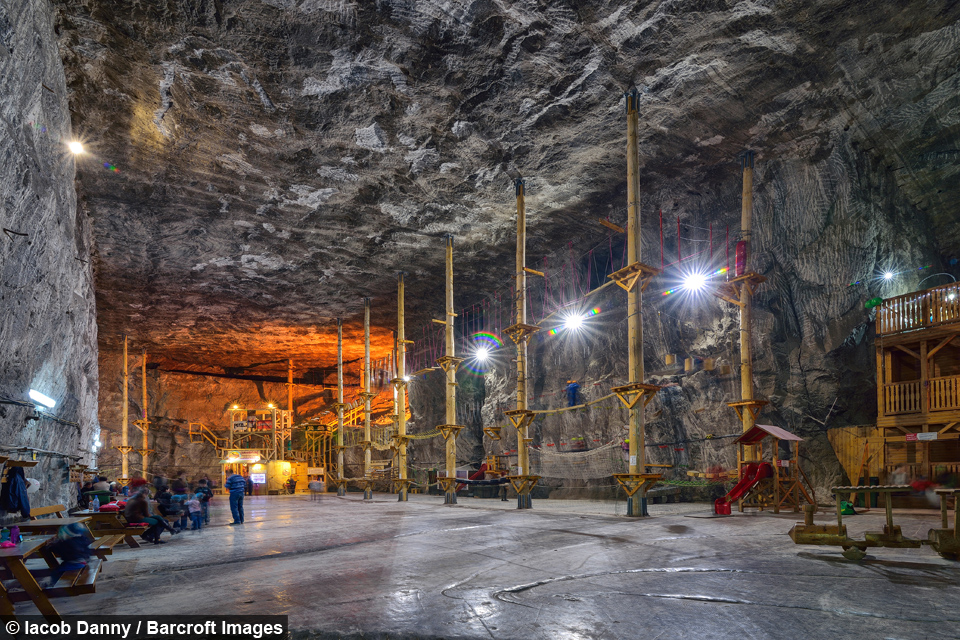Healing Salt Mines: Discover the magic micro-climate deep beneath Romania
By Katie Rawlins
Scroll down for the full story
Only one year after decommission as a mine, the main gallery of Salina Praid reopened in 1980 offering a different experience for those who descend into the depths of the salt mine.
Romanian photographer Iacob Danny spent a day taking pictures of the breathtaking caverns and enjoying the extensive facilities.
The 38 year old said: “I heard about Salina Praid, and that it is one of the biggest salt mines in the country, and even Europe, so I decided to spend a beautiful day there taking photographs but also relaxing and enjoying it.”
The caverns, once ringing with hammers, now hum with the chatter of tourists, eating, swimming and praying in the cavernous chambers with enough amenities for a small village.
Swapping excavation for relaxation the mine now boasts a chapel, museum and inflatable kids area.
It even has its own cafe, restaurant and wine tasting gallery where visitors can sample local specialities and an impressive collection of Romanian wines.
All this entertainment not only beats boredom but it can also boost health.
Spending over four hours in the salty air is said to ease respiratory problems including asthma and bronchitis.
However with 300 stairs to tackle before reaching the lower gallery - 120 metres below the surface - sufferers may struggle to access it.
Iacob, however, had no problems with the decent.
He said: “For me it was easy to get down to the caves but it depends on each person.”
Space is not an issue as the tunnels reach up to 20 metres wide and 18 metres high, but with as many as 3000 visitors a day every inch is needed to accommodate the massive influx.
The origin of the salt mine dates back to Roman times and the rich resource has been exploited by settlers there ever since and continues to be mined to this day - 260 metres below the flow of the tourists.
Salt from this mine is valued all over Europe and it won’t be running out any time soon - at an impressive 1.4 kilometre in diameter, the elliptical salt body contains reserves to last several hundred of years.
